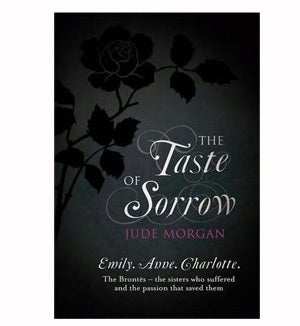The Taste of Sorrow, By Jude Morgan
Withering plights of three sisters

Your support helps us to tell the story
From reproductive rights to climate change to Big Tech, The Independent is on the ground when the story is developing. Whether it's investigating the financials of Elon Musk's pro-Trump PAC or producing our latest documentary, 'The A Word', which shines a light on the American women fighting for reproductive rights, we know how important it is to parse out the facts from the messaging.
At such a critical moment in US history, we need reporters on the ground. Your donation allows us to keep sending journalists to speak to both sides of the story.
The Independent is trusted by Americans across the entire political spectrum. And unlike many other quality news outlets, we choose not to lock Americans out of our reporting and analysis with paywalls. We believe quality journalism should be available to everyone, paid for by those who can afford it.
Your support makes all the difference."It's writing that makes living tolerable." This sentence is the nub of The Taste of Sorrow, Jude Morgan's absorbing novel about the lives of Charlotte, Emily and Anne Brontë. It occurs at that part of their story where, without distancing themselves, the noisy self-annihilation of their brother, Branwell, could have become intolerable. "Writing" covers being able to escape into the imagination – a capacity the children developed early, in response to the loneliness of the Yorkshire moorland around them, and the accumulation of sorrow. It is not just the taste but a diet of sorrow on which they live.
The losses start, as does the novel, with the agonised death of their mother. The six children are all under ten, Maria and Elizabeth the eldest. Patrick, their clergyman father, pious Aunt Branwell, a servant or two and some dogs make up their immediate world. It might have been a straitjacket but for their high intelligence and their father's belief in educating girls. While he taught them himself, all seems to have been well. But, unconventionally, he kept his one boy close while posting all but the youngest girl off to boarding school. It was a choice with extraordinary and disastrous consequences.
The Clergy Daughters' School at Cowan Bridge: as Lowood Institution in Jane Eyre, Charlotte allowed it redeeming features. Morgan does not. He gives us the deadening curriculum, constant criticism and prayer and penitential conditions. Lording over them is the grotesque patron, the Reverend Carus Wilson, who deplores the imagination while spouting fantastic hellfire homilies. That his regime hastens death for some, Maria and Elizabeth included, he can count as gain, as death preserves from sin.
Once freed from this terrible place, the world of the imagination sustains Charlotte, Emily and Anne for the rest of their brief, difficult lives. That they were able to transform that world into fiction is not only a gift to generations of readers, but a continuing cry for freethinking education, especially for girls.
Join our commenting forum
Join thought-provoking conversations, follow other Independent readers and see their replies
Comments